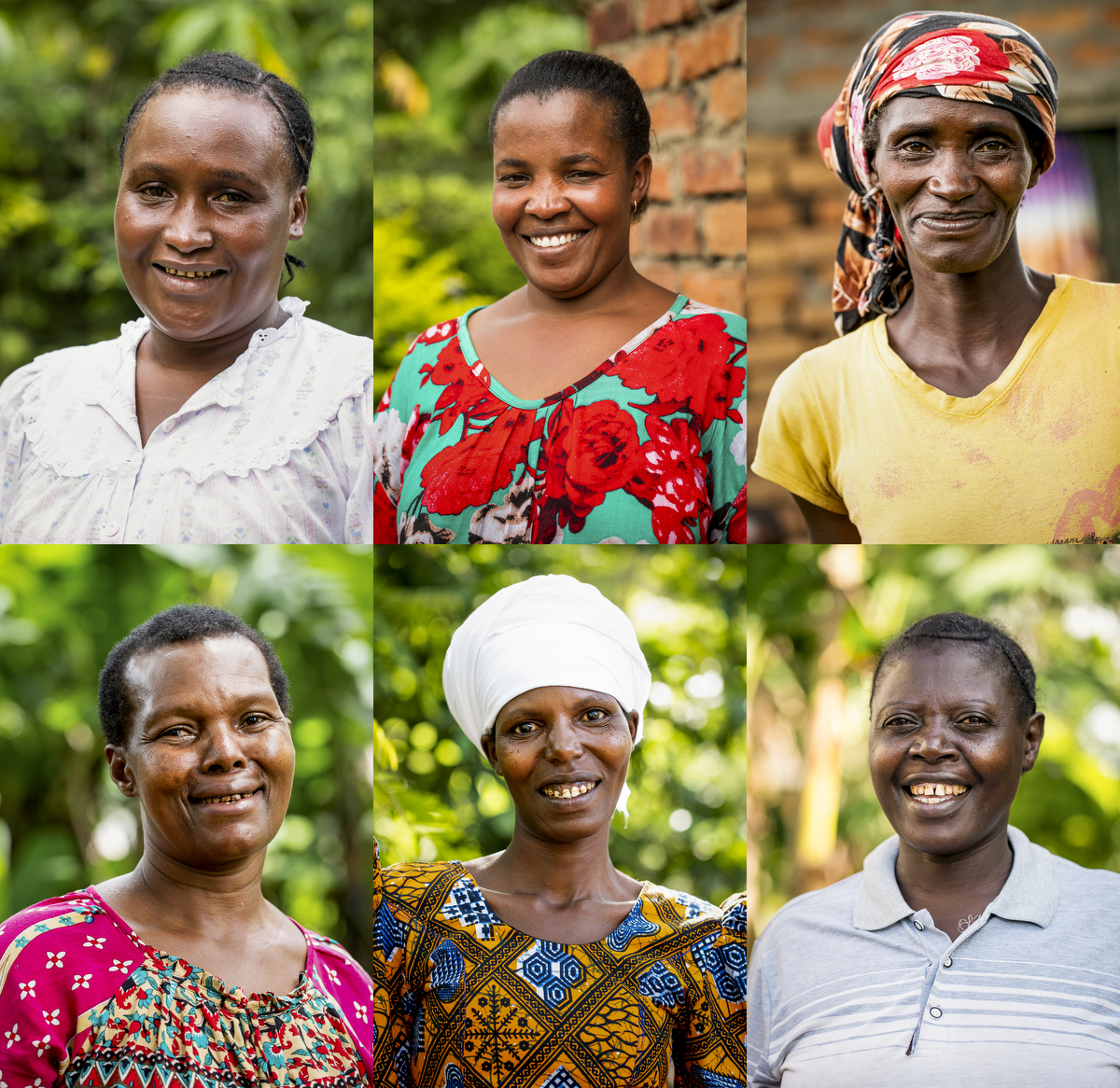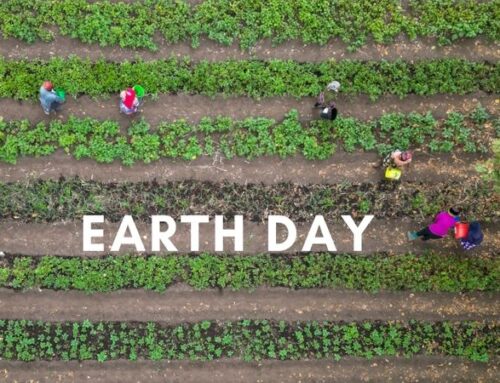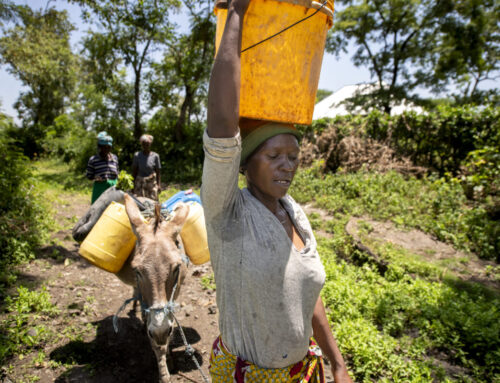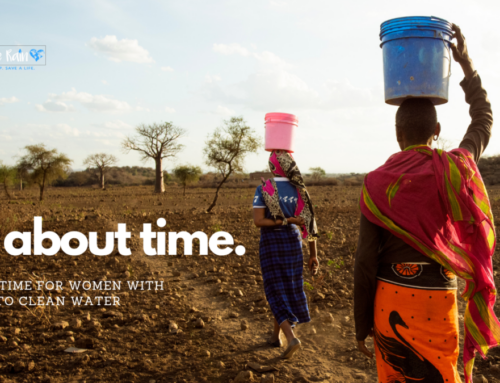In Tanzania, when you become a mother, your name changes. You might have been called Nipaeli all your life, but when your child is born, you become “Mama Joanna,” after your daughter. It’s an indicator of transition. You’ve evolved beyond yourself.
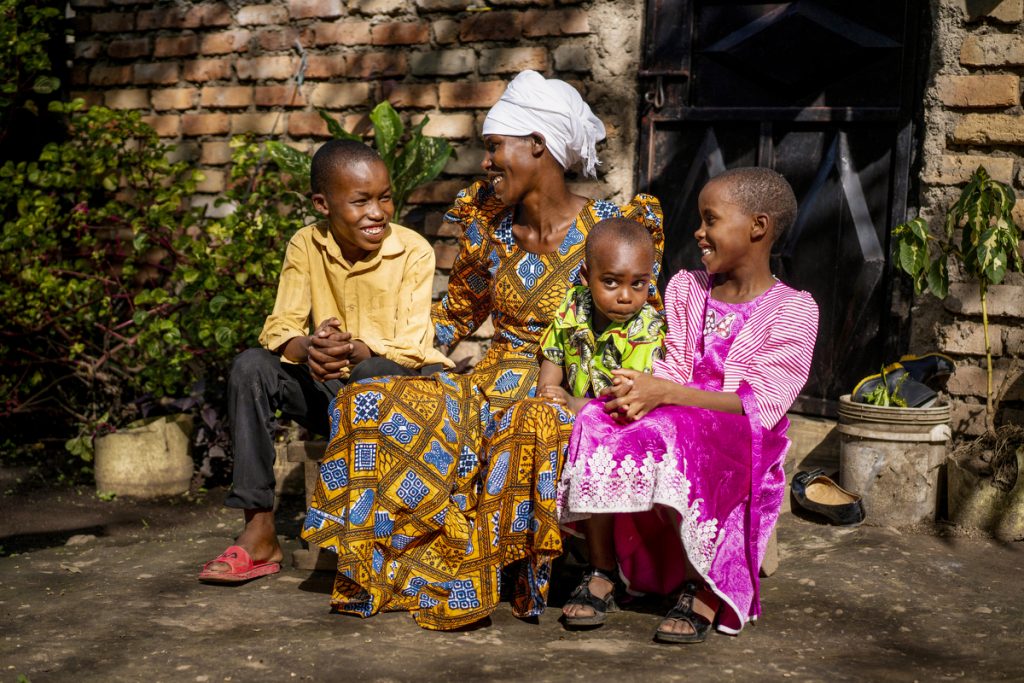
In motherhood, the axis of your world shifts. To love so wholly is life’s greatest gift. It also means you can never give up. You learn what you are truly capable of when you have a child completely dependent on you. And each mother of the Women’s Water Initiative team has been there.
The women all want a different life for their children than what they had. Circumstances of birth, marriage and misfortune narrowed their possibilities until the gift of clean water opened them up and allowed them to dream. Each was first a recipient of a rainwater harvesting tank.
If the walk for water takes you away from your children up to ten hours a day, clean water at home lets you be the mother you want to be.
New path, new dreams
From Anna‘s slender grace and her soft-spoken gentleness, you’d never guess at her grit. In a sense, she’s been a mother all her life. Her own died when she was young, and she raised her siblings. When the man she married turned out to be an abusive alcoholic, she took her seven children and fled for their lives. She had nothing and nowhere to escape to, but she knew she somehow had to get her children to a better place.
When Jonathan was born with cerebral palsy, Nipaeli‘s husband abandoned them. She was heartbreakingly isolated and at the end of her resources when Save the Rain met her. Having clean water meant she didn’t have to leave Jonathan anymore. Nipaeli knew what terrible damage the fluoride-heavy groundwater could do to the body. She shudders to imagine compromising Jonathan’s precious health.
“Because of the tank, he can walk,” she says. It’s that simple. Of course, it’s not just the tank. She has poured so much love into this little boy. She smiles as she watches her children in the garden. Jonathan arches his head back to grin at his sister Joanna who’s helping him push his walker.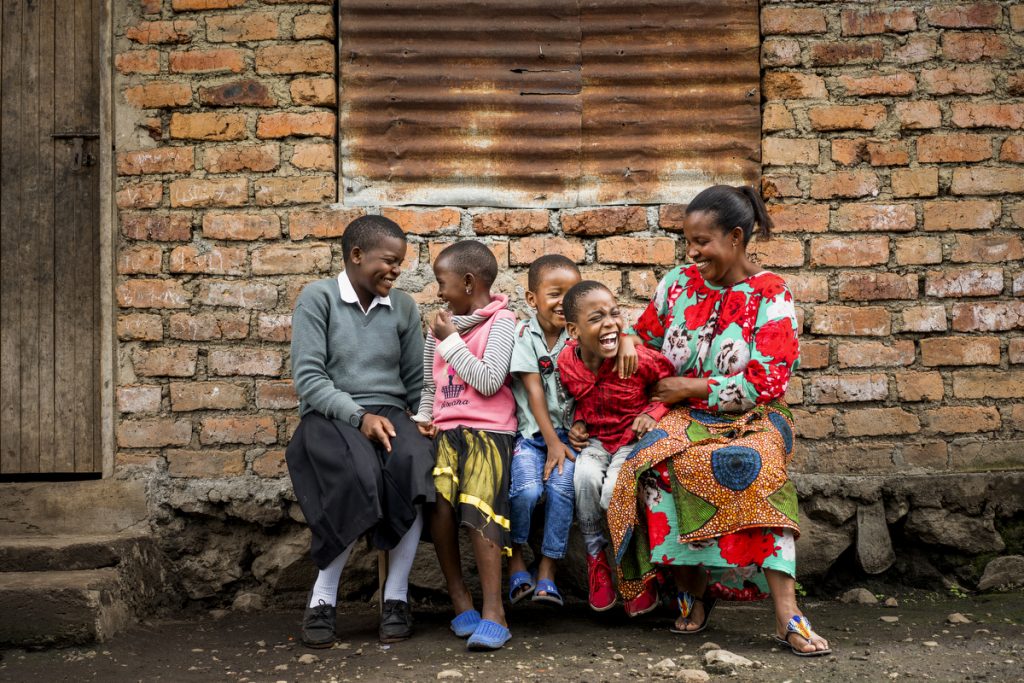
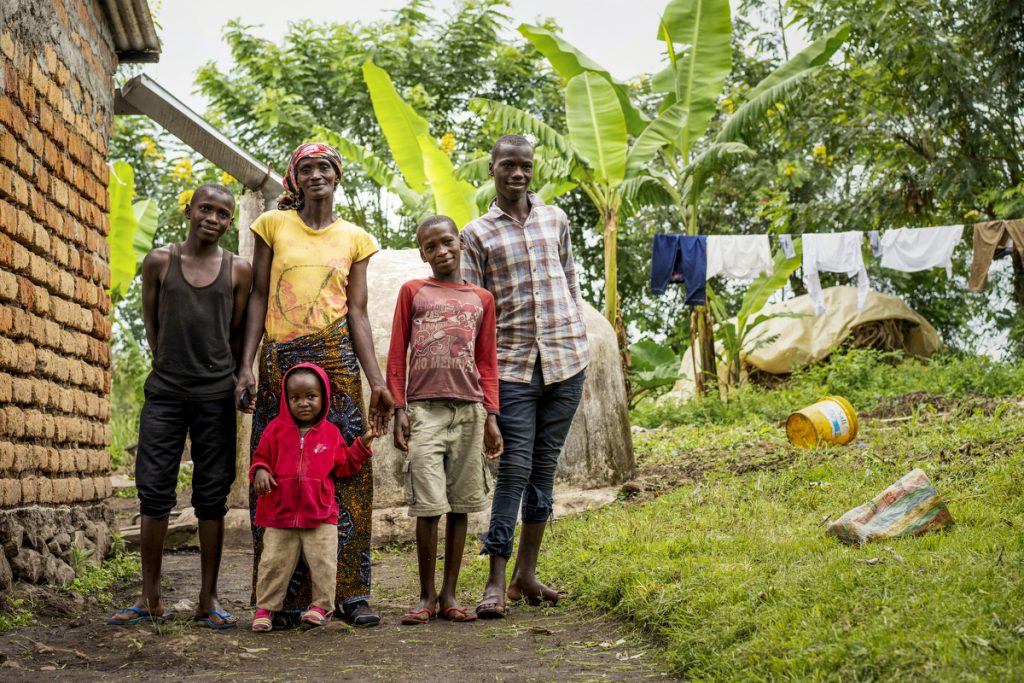
A beautiful old tree shades Elieshi‘s garden. She recalls holding her kids tightly as the rain poured into their house. Her husband died of malaria just after their sixth child was born. Suddenly the sole provider, fetching water, came second to finding enough to eat. Though those hungry days are gone, Elieshi is still thin but not frail. Life stripped away the padding that would soften blows and whittled her down to her essential self. It’s been a challenging process, but she stands proudly in who she is now.
She gathers her boys close while clean school uniforms flutter on the line. Elieshi affixed flower pots converted from old plastic water bottles to the tree. Their bright pink flowers are a beautiful sign of a life that’s finally been allowed to bloom.
‘My mother’s my hero’
For Lemna, the gift of water gave her independence. Her wide, ready smile and girlish energy belie the troubled path that brought her here. There was a time she thought it’d be better to be dead than to have these problems. Her husband kicked her out when she was pregnant with their third child. She fled, and her brothers helped her get back on her feet as Elias was born. Her debt of gratitude knows no bounds, but she didn’t want to be indebted to anyone.
When Save the Rain came to Maji ya Chai, Lemna didn’t hesitate to put her name forward for work. With her salary, she added a room to her house and brought a plot for farming. Last season the field yielded seven sacks of corn, she reports proudly. Elias, who is in secondary school now, remembers not having money for food. He wipes away a tear. “My mother’s my hero,” he says.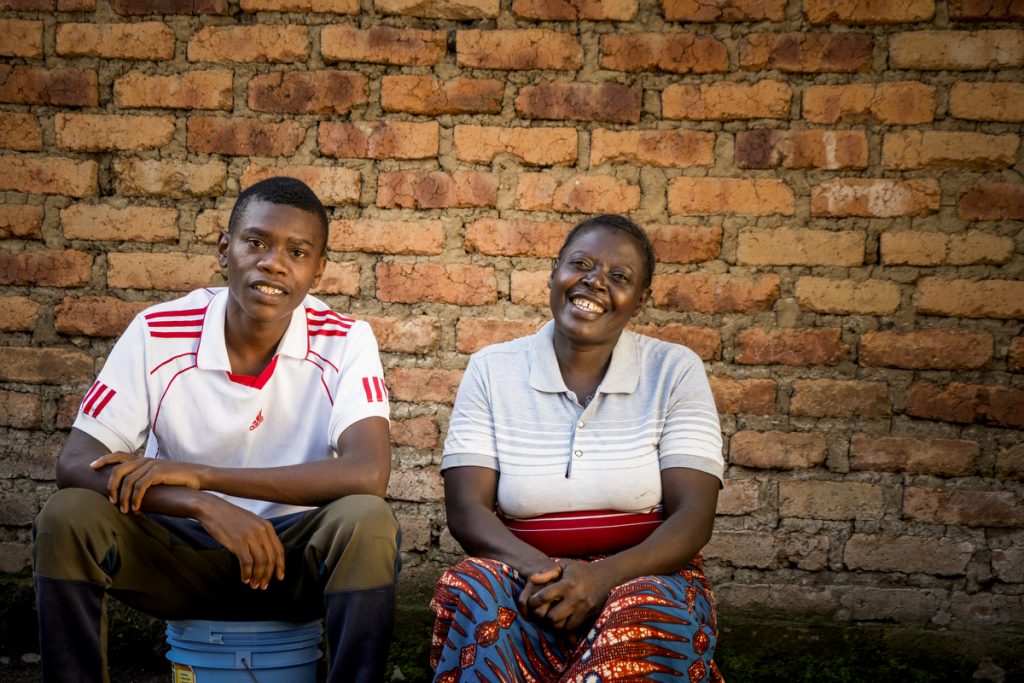
This sentiment is echoed by Anna’s son, who’s only in the 5th grade. When he’s big and has money, he’ll do anything to help his mom. If she gets sick, he’ll take her to the hospital. And he will buy her food if she’s hungry. He’s too little to be thinking like the man of the house. But he’s born witness to what his mother has done for them, and he loves her for it. He and Elias will be very different from their fathers– their mothers have shown them a woman’s worth.
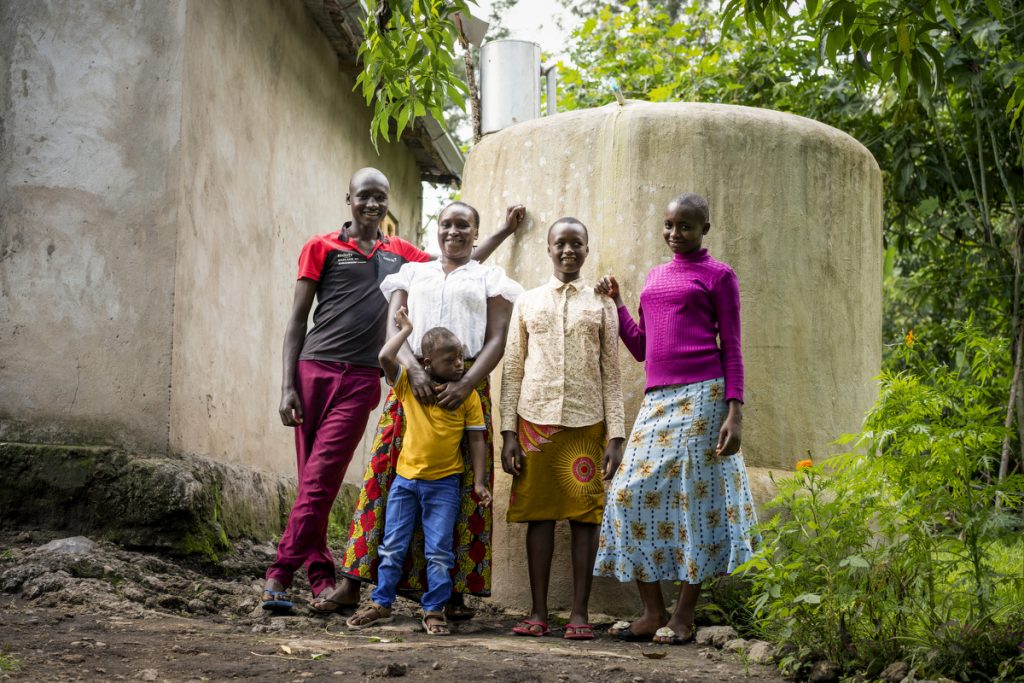
This is Sophia‘s favorite phase of motherhood. Her kids are older and almost independent, apart from her youngest son, Daniel. There’s an ease in knowing that the work she’s done has laid the world at their feet. She smiles in love and contentment, hiding her fluoride-stained teeth with her hand. She can afford to count her blessings. Sophia sits in her garden surrounded by passion fruit on the floor and lush life all around. She has manifested a life of abundance. The sun is golden though the skies are heavy. Everything is green, and the wind playing in the corn leaves sounds just like raindrops.
Women Helping Women
One true blessing for each of these women is the family they’ve found among the women they work alongside. Shoulder to shoulder, sharing sweat and laughter, they share their problems too. The loneliness dissolves, and there are more hands to help bear the load. Every woman they build a tank for is in a place they were once in. They’re lifting her up and out. The oldest tank is just as good as the one built yesterday, and clean water brings gifts that will continue to give for generations to come. And the greatest gift is rain from Mother Earth.
You can help countless mothers by supporting the Women’s Water Initiative.
100% of public donations directly fund our projects
